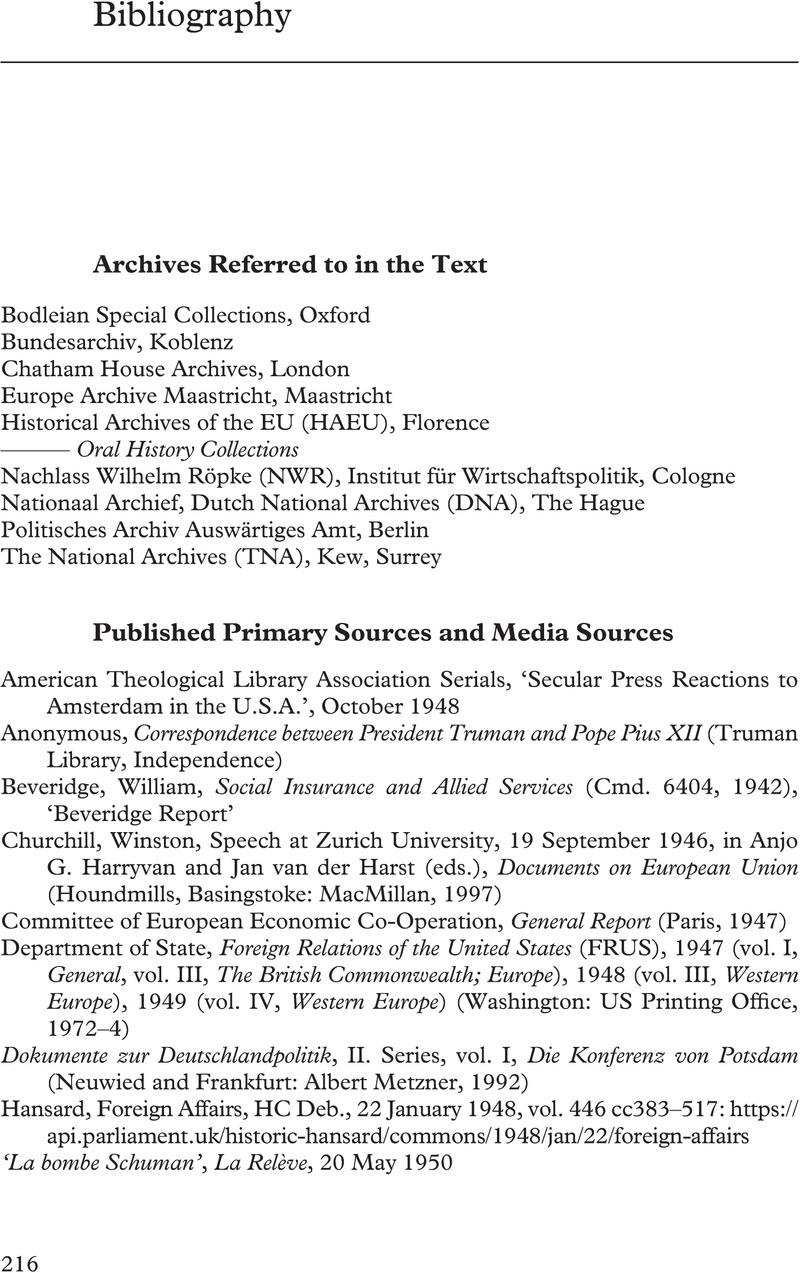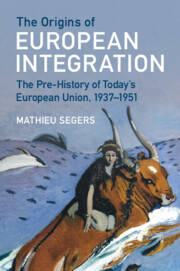Bibliography
Published online by Cambridge University Press: 13 December 2023
Summary

- Type
- Chapter
- Information
- The Origins of European IntegrationThe Pre-History of Today's European Union, 1937–1951, pp. 216 - 230Publisher: Cambridge University PressPrint publication year: 2023



